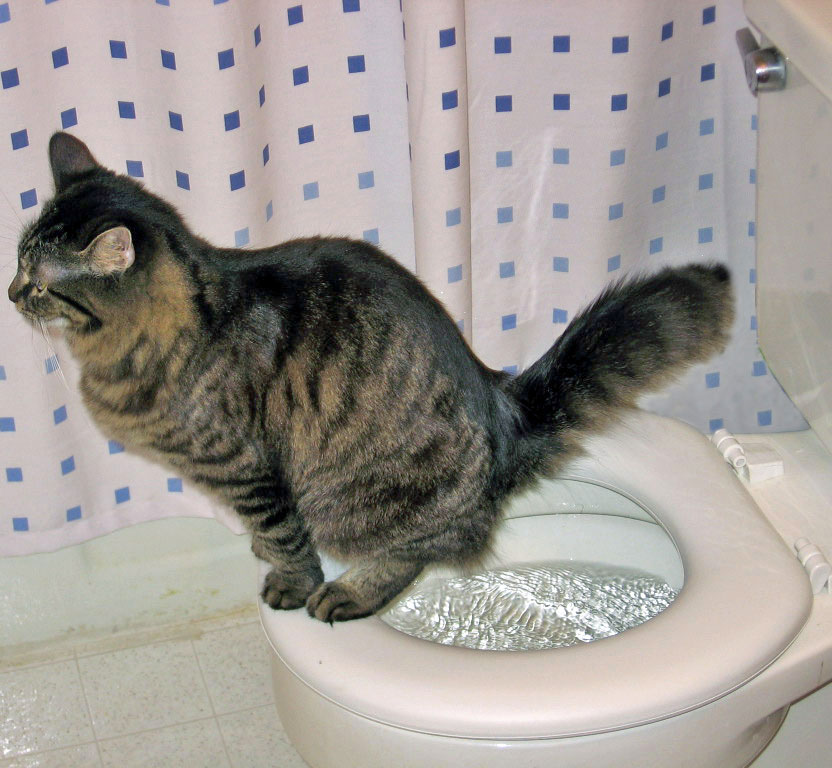Avoid Flush Cat Poop Down Your Toilet - Maintain Your Home's Pipe Integrity
Avoid Flush Cat Poop Down Your Toilet - Maintain Your Home's Pipe Integrity
Blog Article
The author is making several great points related to Don’t flush cat feces down the toilet as a whole in the article just below.

Intro
As cat owners, it's necessary to be mindful of exactly how we take care of our feline good friends' waste. While it might seem convenient to purge cat poop down the toilet, this method can have damaging repercussions for both the environment and human health.
Alternatives to Flushing
The good news is, there are much safer and more accountable methods to take care of feline poop. Consider the complying with alternatives:
1. Scoop and Dispose in Trash
One of the most common method of disposing of pet cat poop is to scoop it into an eco-friendly bag and toss it in the trash. Make certain to use a dedicated trash inside story and get rid of the waste quickly.
2. Use Biodegradable Litter
Choose eco-friendly feline trash made from materials such as corn or wheat. These trashes are environmentally friendly and can be safely disposed of in the trash.
3. Hide in the Yard
If you have a lawn, consider burying pet cat waste in a marked location far from veggie gardens and water resources. Make certain to dig deep enough to prevent contamination of groundwater.
4. Mount a Pet Waste Disposal System
Purchase a pet garbage disposal system specifically developed for cat waste. These systems utilize enzymes to break down the waste, lowering odor and environmental effect.
Health Risks
In addition to environmental issues, flushing cat waste can additionally position wellness dangers to people. Feline feces might include Toxoplasma gondii, a parasite that can cause toxoplasmosis-- a possibly extreme ailment, specifically for expectant females and individuals with damaged immune systems.
Ecological Impact
Flushing pet cat poop introduces unsafe pathogens and bloodsuckers right into the supply of water, positioning a considerable danger to aquatic environments. These impurities can negatively influence marine life and concession water quality.
Conclusion
Accountable animal possession extends past supplying food and shelter-- it likewise includes correct waste monitoring. By refraining from flushing pet cat poop down the bathroom and opting for alternate disposal approaches, we can reduce our ecological footprint and secure human health and wellness.
Why You Should Never Flush Cat Poop Down the Toilet
A rose by any other name might smell as sweet, but not all poop is created equal. Toilets, and our sewage systems, are designed for human excrement, not animal waste. It might seem like it couldn’t hurt to toss cat feces into the loo, but it’s not a good idea to flush cat poop in the toilet.
First and foremost, assuming your cat uses a litter box, any waste is going to have litter on it. And even the smallest amount of litter can wreak havoc on plumbing.
Over time, small amounts build up, filling up your septic system. Most litter sold today is clumping; it is made from a type of clay that hardens when it gets wet. Ever tried to scrape old clumps from the bottom of a litter box? You know just how cement-hard it can get!
Now imagine just a small clump of that stuck in your pipes. A simple de-clogger like Drano isn’t going to cut it. And that means it’s going to cost you big time to fix it.
Parasitic Contamination
Believe it or not, your healthy kitty may be harboring a nasty parasite. Only cats excrete Toxoplasma in their feces. Yet it rarely causes serious health issues in the cats that are infected. Most people will be fine too if infected. Only pregnant women and people with compromised immune systems are at risk. (If you’ve ever heard how women who are expecting are excused from litter cleaning duty, Toxoplasma is why.)
But other animals may have a problem if infected with the parasite. And human water treatment systems aren’t designed to handle it. As a result, the systems don’t remove the parasite before discharging wastewater into local waterways. Fish, shellfish, and other marine life — otters in particular — are susceptible to toxoplasma. If exposed, most will end up with brain damage and many will die.
Depending on the species of fish, they may end up on someone’s fish hook and, ultimately on someone’s dinner plate. If that someone has a chronic illness, they’re at risk.
Skip the Toilet Training
We know there are folks out there who like to toilet train their cats. And we give them props, it takes a lot of work. But thanks to the toxoplasma, it’s not a good idea.

I'm very fascinated by How to Dispose of Cat Poop and Litter Without Plastic Bags and I really hope you enjoyed the new blog entry. Those who liked our post please remember to share it. Thank you for your time. Come back soon.
Click Here Report this page